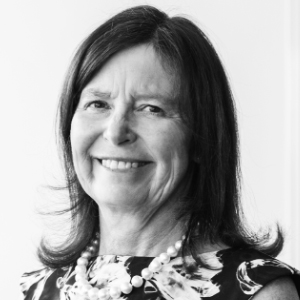Medical Manslaughter
22 Feb 2013

Case history
A psychiatrist Member sought our advice after a recent case was reported in the press where a French psychiatrist was found guilty of manslaughter after one of her patients hacked an elderly man to death.1 Our Member asked if such a case could occur in Australia.
Medico-legal issues
It is evident that decisions such as this can cause considerable concern among psychiatrists. However, there were a number of aspects of the French case that should be taken into consideration:
- The decision was reportedly the first of its kind in France, and likely to be appealed.
- The French legal system has some important differences from the Australian legal system.
- The Court itself expressed that this was a decision which turned on the facts of the particular case.
The Court said [the psychiatrist] should have requested [the patient] be placed in a specialised medical unit or referred him to another medical team, as one of her colleagues had suggested. Her refusal had amounted to a form of "blindness", the Court president, Fabrice Castoldi, said. He stressed that "we are not judging psychiatrists or the psychiatric profession, but a particular case".1
Discussion
In Australia, criminal prosecutions for medical negligence are rare events. In 1843 Dr Valentine was charged and found guilty of manslaughter. Since then a handful of doctors in Australia have faced charges of manslaughter:
- A GP was found guilty in 2000 after administering an adult dose of morphine to a young child, resulting in the child's death.
- An anaesthetist was charged and acquitted of manslaughter in 2001 when he allegedly failed to notice his patient was not breathing after an operation.
- A GP pleading guilty to negligent manslaughter in 2006 after inadvertently prescribing 5 ampoules of morphine tartrate 120mg for unsupervised use to patient with lower back pain. The patient died of a morphine overdose.
- A surgeon was charged, but charges were dropped mid-trail in 2009 in relation to the death of a patient from punctured iliac vessels during a hysterectomy.
More recently Dr Jayant Patel was convicted of three counts of manslaughter and one case of grievous bodily harm.
In August 2012, the conviction was rescinded by the High Court and retrial was ordered due to “highly emotive and prejudicial evidence that was irrelevant to the case” led before the jury.
The threshold for a prosecution for medical manslaughter is high. In order for a successful prosecution, it must be shown not only that the negligent act caused the death, but more importantly, it must be shown that the degree of negligence was so gross or culpable as to warrant criminal conviction and punishment.
It is also worth noting that the cases mentioned above involve the situation between a doctor and their patient, and we are not aware of any case in Australia which has extended to a third party, such as in the French case.
Risk management strategies
With the above in mind, we suggest that where you are concerned about the potential risk a particular patient may pose, either to a specific individual, the general public, or to themselves, you could consider :
- reviewing the patient's clinical history with an experienced colleague, to determine what, if any, action is required to protect the public, or to protect the patient from self-harm.
- contacting the Chief Psychiatrist and/or MDA National for advice.
There are certain exceptions to your duty of confidentiality and privacy, so that if you are of the view that there is a serious and imminent threat to the safety of an individual, or an overriding duty in the "public interest" to disclose information regarding a patient, then you can breach confidentiality and take appropriate steps. Again, we would suggest that this be considered after review with your peers, and discussion with MDA National.
Summary Points
- Criminal prosecutions for medical negligence are extremely rare.
- The duty of confidentiality is not absolute. Exceptions include circumstances where there is a serious and imminent threat to the safety of an individual, or an overriding duty in the "public interest" to disclose information regarding a patient.
Reference
- Dyer C. French psychiatrist is convicted of manslaughter after her patient kills an elderly man. BMJ 2012; 345:e8693. Available at bmj.com/content/345/bmj.e8693.
The French psychiatrist referred to in the article appealed the conviction. In 2014 the appeal was upheld and she was acquitted.
Professional boundaries in healthcare - Part 1
Boundaries with patients present in numerous ways every day and all health practitioners
11 Aug 2025
Understanding Professional Medical Indemnity Insurance
Do you understand the ins and outs of professional medical indemnity insurance?
11 Aug 2025
Professional boundaries in healthcare - Part 2
Boundaries with patients present in numerous ways every day and all health practitioners
11 Aug 2025
Understanding changes to the Fair Work Act
What are the changes to the Fair Work Act and what is my role?
22 Jul 2025







